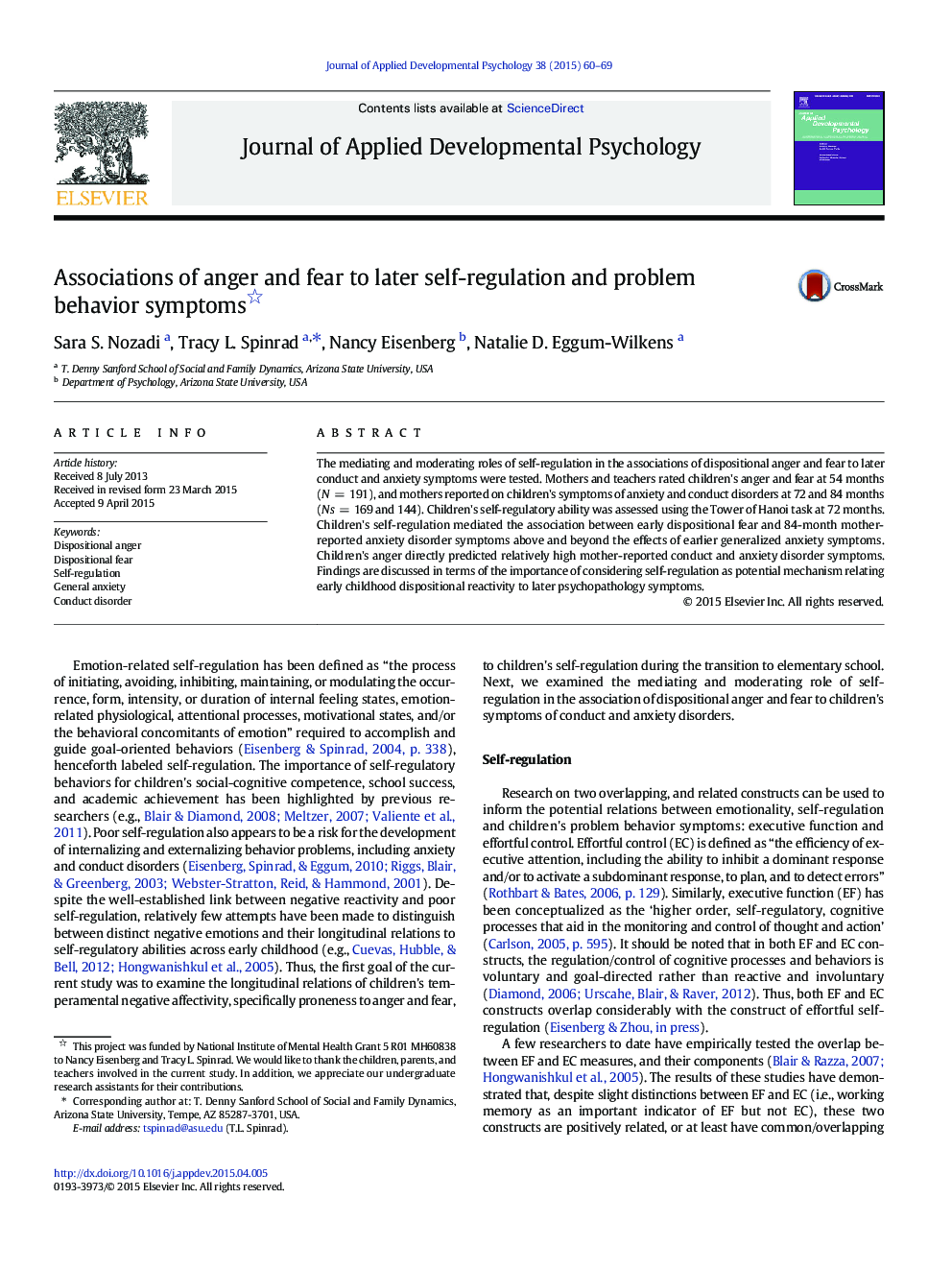| Article ID | Journal | Published Year | Pages | File Type |
|---|---|---|---|---|
| 359703 | Journal of Applied Developmental Psychology | 2015 | 10 Pages |
•Self-regulation mediated the longitudinal relation between fear reactivity and anxiety.•Toddler's fear reactivity negatively predicted their later self-regulation.•Toddlers' self-regulation in turn predicted later anxiety symptoms.•Toddlers' anger reactivity was unrelated to later self-regulation skills.•Anger reactivity positively predicted to later conduct and anxiety problems.
The mediating and moderating roles of self-regulation in the associations of dispositional anger and fear to later conduct and anxiety symptoms were tested. Mothers and teachers rated children's anger and fear at 54 months (N = 191), and mothers reported on children's symptoms of anxiety and conduct disorders at 72 and 84 months (Ns = 169 and 144). Children's self-regulatory ability was assessed using the Tower of Hanoi task at 72 months. Children's self-regulation mediated the association between early dispositional fear and 84-month mother-reported anxiety disorder symptoms above and beyond the effects of earlier generalized anxiety symptoms. Children's anger directly predicted relatively high mother-reported conduct and anxiety disorder symptoms. Findings are discussed in terms of the importance of considering self-regulation as potential mechanism relating early childhood dispositional reactivity to later psychopathology symptoms.
